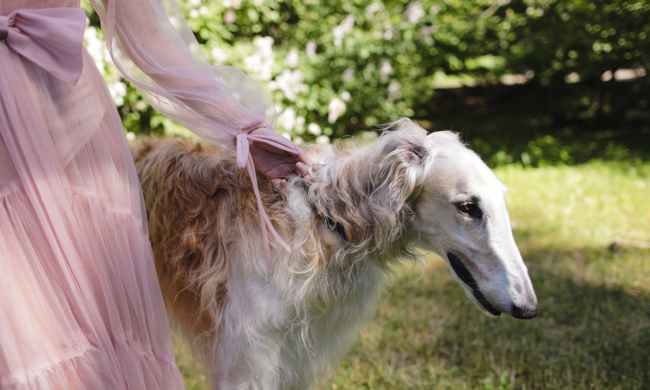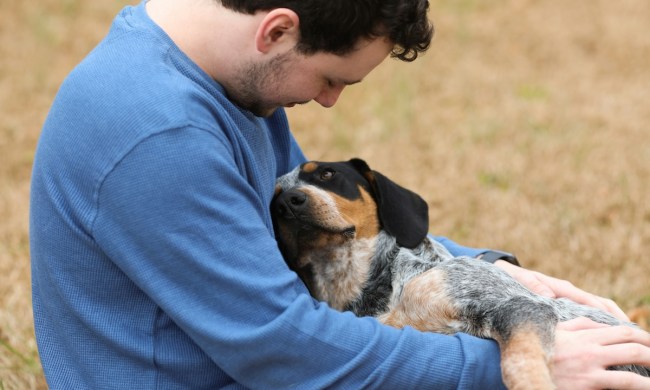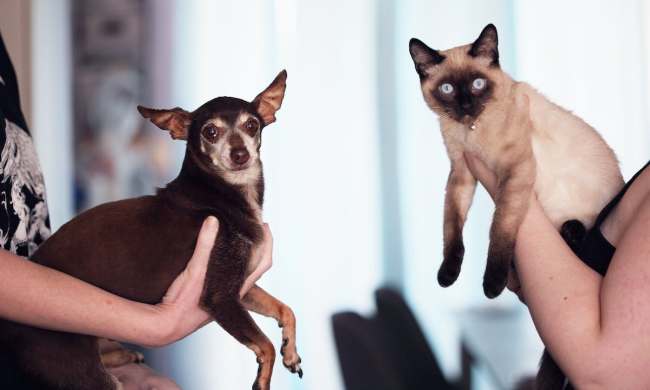Getting doggy kisses must be one of the best parts of pet ownership. While some pooch parents decide not to allow face licks, all these behaviors come from a place of love — it’s one of the best ways your dog knows to say how much they appreciate you being their mom or dad. But why do dogs lick each other? The reasons can vary quite a bit, though they’re mostly all harmless (we’ll cover when you should be concerned and talk to the vet). This is what you need to know about your buddies licking each other.
Why do dogs lick faces?

It’s not just that pup pups enjoy licking; they particularly go for faces, ours and other canines. When our buddies are little, their moms give them dog kisses to help them learn to potty and keep them clean. However, you may find it odd to discover your pet excessively licking another dog’s face. Sometimes, they do this for the same reason as any other licks, but there can be a few extra motivating factors.
Remember how puppies enjoy getting slobbered on by their parents? That encourages licking behavior and can mean some beasties get calmed down by it. Alternatively, it can serve as a way to appease another dog. You may spot your furry friend licking his lips to communicate a greeting to his four-legged brothers and sisters. Lastly, after a particularly tasty snack, don’t be surprised to find everyone licking each other — they’re all searching for crumbs from their sibling’s lips.
Why do dogs lick each other’s ears?

Dogs often lick ears for similar reasons. Disgustingly, dogs may lick each other’s ears because they enjoy the taste of ear wax (yum!). Alternatively, this could be a sign of an infection or even ear mites, so definitely check in with your vet if you have any concerns. If you worry about excessive licks more broadly or if the animal on the receiving end doesn’t seem to enjoy it, you can redirect them and try to get them to stop by engaging your pup until they decide to let the ears be. You can also give a gentle “no,” although we certainly don’t recommend punishing this behavior.
Why do dogs lick each other?

This might explain why they lick ears in faces — in search of flavor tops that list. But why do pups give each other kisses more generally? Here are the four main reasons.
Bonding
Much like their relationship with you, they might use licking to bond and communicate with the rest of the pack. You might especially notice this at the end of the day or after meals when they are trying to cuddle and give affection to the others in their household.
Submission
Don’t be shocked to discover that the submissive beastie does a lot of the licking. Sometimes, the lowest in the pecking order is the one to give baths to remind all the dominant dogs of their loyalty. If you fear any of your guys are hurting each other, you should work with a trainer, but otherwise, it’s best not to intervene in this particular aspect of dog culture.
Anxiety
So far, we’ve covered normal, everyday licking that will become a natural part of the routine. However, an acute increase in licking can indicate something else entirely. A lot of times, a sudden lip smacking means something has caused stress. This could be a thunderstorm, a trip to the vet, or anything else that frequently upsets your little animal.
Health
Unlike anxiety, this extra licking won’t have an obvious cause but instead happens consistently but relatively abruptly. That means it could come from something related to their health, including stomach issues. Alternatively, sometimes dogs lick their paws when they have itchy feet from allergies or even parasites. And remember, if ears are the target, it could be that their companion has ear mites. A quick trip to the vet should get to the bottom of this.
Your dog loves their siblings, so they want to express that pure faithfulness through kisses. Assuming this behavior is part of their normal day-to-day activities, there’s nothing to worry about. A sudden increase or excessive licking can indicate anxiety or a few usually treatable health issues. Either way, your dog doctor will work with you to fix the problem. Next time Fido licks you, feel free to give them a kiss right back on the head. And if they’re licking each other, enjoy watching them bond and show affection for each other.




